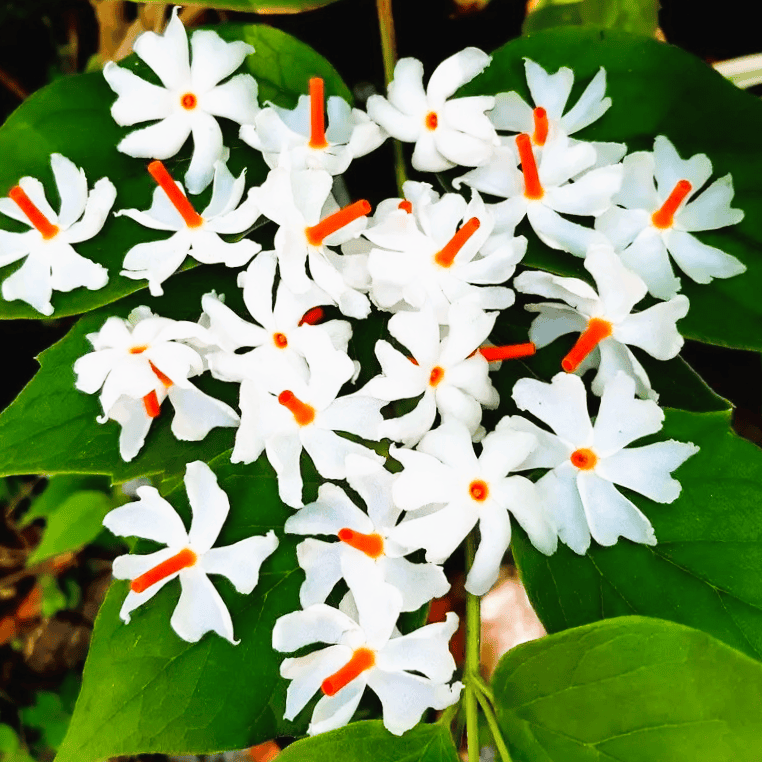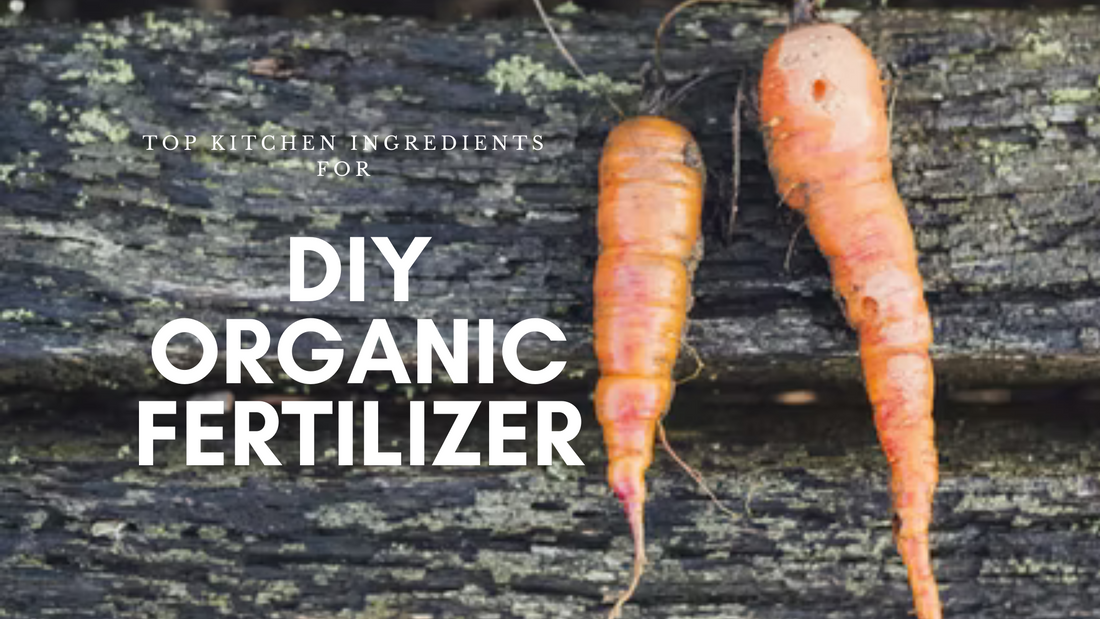
Organic farming has taken massive popularity among people- and all for the right reasons! Not only they play a critical role in maintaining our health, but they are a sustainable method and greatly benefits the environment. Organic farming essentially means growing your fruits and vegetables in a natural way, without the use of synthetic supplements and pesticides. With the chemical components out of the mixture, you can definitely count on the rich potpourri of nutrients that you will benefit from the harvest. Not only is gardening a very therapeutic activity, it also aids in balancing the mental and physical health.
Composting: Waste Not, Want Not!
Now, a healthy plant comes from a healthy soil, and a healthy soil has a balanced mixture of macro- and micro-nutrients to supplement the plant. Making your own compost from basic kitchen left-over scrapes and waste is not only nutrient effective, but also cost efficient- and adding them to the soil, enriches it with the much needed nourishment. Composting might be everything you will need to have a healthy harvest. However, you are growing a vegetable or a fruit that is a heavy feeder, then adding a fertilizer with the compost will not only lead to a better production but will also allow you to re-use the soil in the next season.
Check out Leafy Island's Medicinal & Herbs Plants Collection. Use code FIRST100 for Flat Rs. 100 Off on your first order.
NPK- The Holy Grail of Gardeners
Every gardener - amateur and experienced - has heard of NPK. NPK stands for Nitrogen, Phosphorus and Potassium. While your garden will need a balanced composition of macro & micro nutrients and trace elements, these three macronutrients are THE most essential components needed for a bountiful garden. So when you hear about 19-19-19 NPK or 16-5-5 NPK, it only means the ratio of Nitrogen to Phosphorus to Potassium. The universal composition is 19-19-19, but there are various specific compositions for plants that are known to show even better results.
So what do these oh-so-very important nutrients do?
- Nitrogen aids in foliar and leafy growth. It increases the speed of growth as well as the yield.
- Phosphorus is the component that promotes flowering and fruiting in a plant, apart from keeping the roots healthy.
- Potassium is all-rounder plant protector - nourishing the plant, improving resistance towards pests and retain the proteins.
Less is More
Anyone working with organic fertilizers knows that the effect might not be very quick, unlike using the chemical supplements. In this scenario, we might get a little impatient. Though organic fertilizers are the most amazing thing in the long run, the immediate non-effect might lead you to putting more than required in the soil. This leads to fertilizer burn that manifests on the plant in the form of curled leaves, brown tips and leaf shedding. So if you have added the rich manure to your soil, then sit back and let the soil do its own magic in its due time.
Homemade Organic Fertilizers
Now with this basic knowledge, let us check out some kitchen waste, which might not be as wasteful as you might have thought!
Coffee Grounds
Remember when we told you that Nitrogen is an important contributor of plant health? Freshly used coffee grinds are an amazing source of Nitrogen, Potassium and Magnesium, that can be added to the based of the pot or mixed with the soil for the nutrient uptake. Ensure that the used coffee grind doesn't contain any sugar and is completely dried off before adding it in the soil.
Banana Peel

Banana peels are some of the most understated sources of nutrition. They have the highest organic Potassium source that helps greatly in the nutrient flow in the plant body. Not only do they help in the overall growth, but also in flowering. Next time you are planting Roses, just bury a banana peel at the base of the pot and see the effect.
Wood Ash
Having a woodfire pizza? Wait! Don't throw the ash! Yep, you heard us right. Ashes in the soil supply Potassium and Calcium carbonate. But make sure you haven't added any charcoal or inflammable liquid in the ash, since that affects plant growth. Ashes are alkaline, so if you are potting plants that love an acidic soil, then you might want to keep the ash away from the soil to maintain its alkalinity.
Egg-Shells

Egg shells contain almost 1% of Nitrogen and are almost entirely composed of calcium carbonate. Calcium plays a fundamental role in cell structuring and manufacturing, so naturally they are an effective addition to the soil. Dry your egg shells until they are moisture free and grind them to a powder. Note- this is an essential part, since grinding the shells helps in faster decomposition and uptake. Sprinkle the powder around the soil and water the plant..
Epsom Salt
Epsom salt has a composition of hydrated Magnesium Sulphate. Mix 1 Tablespoon of salt in 1 gallon of water and homogenize (Stirred, not shaken) well. Once a month, spray on the foliage to ensure healthy plant growth.
The Ancient Recipe: Tea Fertilizer
Now, if you are feeling a little adventurous, here is an amazing recipe for a quick fertilizer fix that you can grow at home. This recipe has been used since ages. Use it in your garden for a quick and economic dose of nutrients for your plants.
How To Use
- In a 10L bucket, mix 1/4 cup of epsom salt, 2 cups of urine (yes, urine), and 2 cups of wood ash (no inflammable fluid or charcoal, please). If you don't have wood ash, you can also add a few handfuls of dead, dry leaves and twigs.
- Fill the rest of the bucket about half way with pruned grass, pruned green leaves or dried leaves, or even weeds pulled right out of the ground.
- Fill the bucket with water till the brim and allow the mixture to steep for three days.
- After steeping, strain the decoction into an old 2 litre bottle.
- Before usage, dilute by 50% by mixing half water and half tea.
- Apply directly by pouring it onto the soil around your plants.
Why 3 days for steeping? Because by day 03, most of the soluble nutrients would have seeped out into the mixture solution. Straining the mixture prevents fermentation, which you would want to avoid. Fermented materials smell really bad, and their pH can also change rapidly. Hence it’s important to stick with a 3-day steeping, and then use the concentrate in a couple of days.
Organic compost is by no means an exhaustive resource. You will always have enough for your plants, as long as you know what to use and how much to use. An added advantage is that you can add the component needed for the plant based on its requirement. Now that you have access to various sources that have a commendable composition of a main ingredient, you can identify what the plant is lacking and what to add to supplement the same.
So next time you are tossing anything in the trash can, ask yourself- 'Can I reuse it?'

Need Help?
If you have any questions about your plants, you can chat with our Plant Experts to assist you with the same! (PS. you can reach out to our Plant Experts for pretty much any query related to your plants 😉)
Looking to add to your Plants collection? Check out our Free Plant Picker Quiz for some super-smart recommendations.



